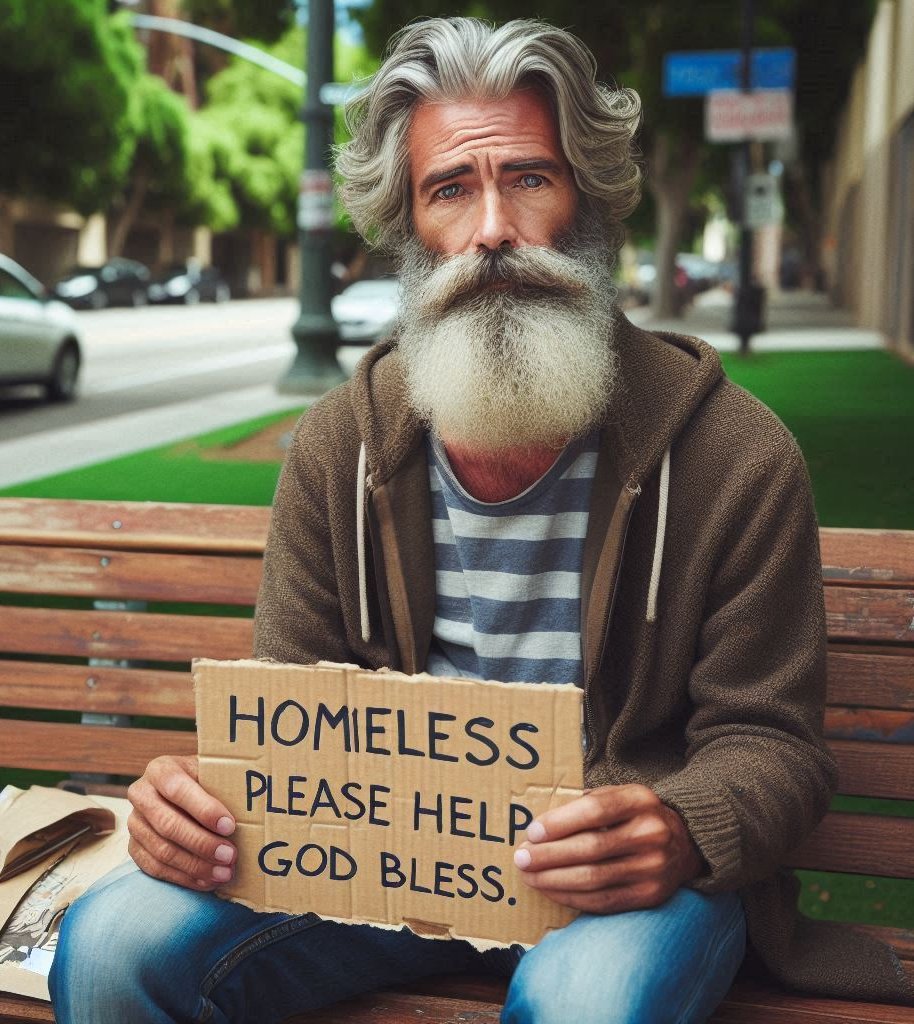The Unseen Man

He walked the streets of Anytown USA, and nary a person saw him. He was there in plain sight for all to see, as real as anyone else, but he may as well have been invisible.
He moved along with the thronging crowd, a silent observer in a churning human sea. Vendors hawked their wares, children laughed as they played, and the distant thrum of a subway train hinted at a world below.
He sat on a bench in the park to rest his aching body and weary feet. No one noticed him, the bearded figure clad in working-man’s clothes, holding a hand-lettered cardboard sign that said: “Homeless. Please help. God Bless.”
People hurried by, lost in their thoughts, electronic devices, and conversations, blind to his presence among them. No one stopped to read his sign; no one offered food or drink; no one said a kind word. If anyone noticed him at all, they saw only another nameless face, a derelict, a bum, lost in the mosaic of city life.
Memories flooded his mind as he recalled his life before—a four-bedroom home, a loving wife, three energetic children, close family and friends, a good-paying job, and a rich life filled with purpose, love, and joy. Then came the dark days of depression and despair—unexpected and cruel—and like a thief in the night, it stole it all away.
The sun dipped low, and long shadows stretched over the steel and glass buildings nearby. He rose from the bench to find a public water fountain, and hopefully, a morsel of leftover food to eat.
Two men approached, clothed in tactical gear and wearing guns. They questioned him, curt and cold, their steely eyes assessing with suspicion and contempt. Despite his gentle demeanor and the sign he held, he was to them, a vagrant without a home, an outsider who didn’t belong, a lawbreaker to be taken off the street. They cuffed him with rough, uncaring hands and led him to a black van bound for a destination unknown.
As the vehicle pulled away, his tears flowed, and he wept—not for himself—but for the people who failed to show compassion, dignity, or care. The cityscape faded into the twilight with the passing miles, and he recalled the ancient words of a man who taught how it should be.
“I was hungry, and you gave me food; I was thirsty, and you gave me drink; I was a stranger, and you welcomed me; I was naked, and you clothed me; I was sick, and in prison, and you visited me. As you did it to the least of these, you did it unto me.”
And so it has been and will always be: silence in the face of suffering, judgement in place of mercy, neglect in lieu of care—a callous indifference common to every culture, creed, and land, in an endless echo across time.
Discover more from Twisty Tales
Subscribe to get the latest posts sent to your email.


